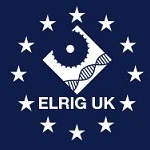Abstract
Use of artificial intelligence (AI) in chemistry has the potential for a transformative impact on the field of drug design and discovery. At Iktos, we have combined structural information with generative chemistry and QSAR models to develop a robust 3D structure-based generative AI pipeline for early stage hit discovery projects, which identifies molecules that optimize interactions in the binding pocket, relevant to activity or other properties. This pipeline generates novel chemical matter and is not restricted to what can be screened via traditional methods like virtual library screening. In addition to docking, tools like MMGBSA are also deployed for better binding affinity evaluation. We used this pipeline in a structure-enabled project with Oncodesign as a proof of concept. We successfully targeted PIM1 kinase using a structure-based generative modeling approach. New molecules have been proposed, synthesized, and tested and serve as a proof of concept of this approach. After synthesizing and testing only 12 molecules from 5 diverse scaffolds, 4 have activity less than 5 μM, and 2 have activity less than 1 μM. These two molecules represent two different scaffolds and binding modes in the same pocket. All synthesized compounds have shown good preliminary ADME properties, and all have FTO for intellectual property purposes. This success validates our approach and demonstrates the robustness of our pipeline. Current and future work includes generation and synthesis of more molecules with these scaffolds, with improved activity and ADME properties.

